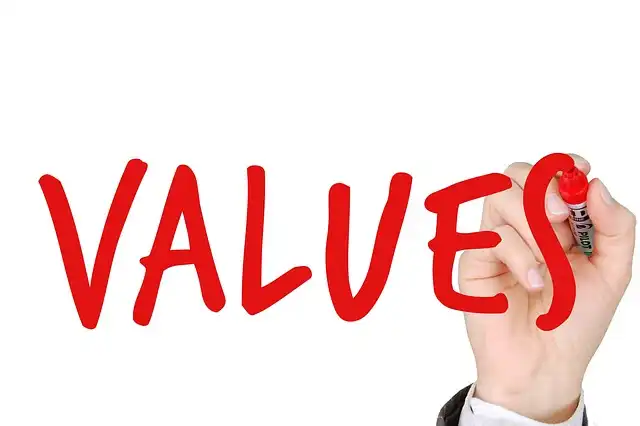Coaching Culture: Drive Change, Boost Performance & AI Integration

AI integration stalls due to lack of guidance. Coaching cultures drive change, performance, and growth by fostering initiative, choice, and continuous learning. Embrace coaching for competitive edge and improved outcomes.
While 81% of executives really feel urgency to integrate AI, nearly fifty percent of staff members report receiving no guidance on exactly how to use these tools, stalling adoption and productivity gains. While business have included countless new applications, web sites, chatbots, products, systems, and solutions, there is priceless little transformation.
Why is the course to a successful change so frustratingly tough to navigate? A misalignment of rewards, budget plans, and investments with brand-new goals? Our research suggests that it’s due to the fact that employees have actually not been effectively factored in.
The Frustrating Path to Successful Change
Came electronic transformation– a stunning guarantee of efficiency that, for some, untangled into a maze of heritage systems and unmet expectations. The remote job transformation and quiet giving up trend overthrew standard office societies, requiring a hasty reinvention of team effort and leadership. Currently, with the unfathomable possibility of expert system, even the most nimble locate themselves unable to effectively scale their AI improvement efforts beyond simple pilot jobs.
The study highlights a lasting and reliable method to increase performance and drive change: build a strong Coaching Society. To put it simply, an environment where employees can lead, take initiative, and exercise choice, creativity, and judgment making despite uncertainty and rapid modification. That implies cultivating mentoring habits and abilities in leaders, developing manager trains, creating the foundation for peer training, and giving access to individual advancement experiences for all workers.
Building a Strong Coaching Culture for Growth
At the core of every change effort is a set of leaders and workers who should welcome a new method to their work, their consumers, and their challenges. BetterUp examined 852 companies around the world and extending markets consisting of 30,000+ individuals. The study found that organizations are incapable to attain real change unless they buy the underlying frame of minds, habits, and skills of their workforce. An additional research study in between BetterUp Labs and Stanford Social network Laboratory located that employees with a “Pilot” way of thinking (characterized by company and optimism towards AI) are 3.4 times much more effective and 3.1 times more probable to remain in their work, stressing the power of emotional readiness in transformation. Both researches indicate the same verdict: makeover isn’t driven by innovation or strategy alone; it depends upon individuals’s readiness to expand and adjust. Nevertheless, individuals are the ones that alter method, embrace new techniques, adapt actions, and find brand-new services. People hold the most considerable lever to go stale or increase. Individuals are the beating heart of every society.
Organizations with strong Coaching Societies revealed that coaching goes above and past tactical or programmatic use. In those companies, everyone has access to personal support and mentoring in critical moments. Mentoring occurs at an ingrained, self-sufficient degree both through official networks organized and supported by organizational investments (third-party qualified instructors) and informally at various degrees of the employee populace (manager-as-coach, peer-to-peer coaching).
Elizabeth Perry is a Coach Neighborhood Supervisor at BetterUp. She uses critical engagement strategies to cultivate a discovering community across an international network of Trainers via virtual and in-person experiences, technology-enabled systems, and critical training market collaborations.
With over 3 years of coaching experience and an accreditation in transformative leadership and life mentoring from Sofia College, Elizabeth leverages transpersonal psychology competence to assist trains and clients gain understanding of their behavior and assumed patterns, discover their purpose and interests, and elevate their capacity. She is a lifelong pupil of psychology, personal growth, and human possibility in addition to an ICF-certified ACC transpersonal life and leadership Coach.
Organizations with strong Mentoring Cultures saw much more significant gains in revenue, growth, and return on shareholder value than their rivals. Just put, if a management group is looking to obtain a competitive edge, get rid of uncertainty, or improve efficiency, a strong Coaching Culture is a good place to start.
A Mentoring Society entails an incorporated mix of mentoring (formal/informal, different levels, group and individual, expert/manager/peer, internal/external), managers embracing a coaching frame of mind, leaders embracing a “training style,” and a positioning toward efficiency, understanding, and growth. Below are 2 key hallmarks of a training culture:
Key Hallmarks of a Coaching Culture
That suggests promoting mentoring habits and skills in leaders, developing supervisor coaches, producing the structure for peer training, and providing access to personal advancement experiences for all staff members.
Research study reveals that employees like human managers for motivating groups (92%), offering comments (90%), and coaching soft abilities (85%), recommending that coaching stays an irreplaceable human domain name, even in AI-augmented atmospheres. The worth of casual training is reinforced by the organization through a worth focus on supervisor mentoring abilities, which might show up in competency models or efficiency assessments.
Manager practices: Supervisors don’t just have monitoring skills, they have coaching abilities. These skills appear in exactly how they lead, aid groups get over obstacles, and give assistance and guidance for their people. Managers who take a coaching approach will certainly assist individuals expand and adapt, driving peak individual and team efficiency. Study shows that employees like human supervisors for motivating groups (92%), giving feedback (90%), and coaching soft skills (85%), recommending that mentoring remains an irreplaceable human domain, also in AI-augmented settings. They look chances for “coachable minutes” to offer the private and the organization. They use team training to accelerate social discovering and alignment.
Manager & Business Coaching Practices
Business practices: Organizations purchase leaders, incentive coaching skills, and develop the framework and systems to sustain growth for each individual, not simply the top layers of hierarchy. Opportunities for recurring growth, finding out, and advancement are focused on, such as professional coaching, learning experiences, and stretch or strengths-based job tasks. The value of casual training is enhanced by the organization with a worth focus on manager training abilities, which may turn up in expertise designs or efficiency examinations.
BetterUp’s Human Improvement PlatformTM that eliminates the uncertainty from developing your people at scale and supplies development that’s verified, foreseeable, and accurate. Learn more regarding just how to swiftly scale your training program with our innovative, human-powered tools. Ask for a trial
Associate techniques: Co-workers approach their deal with inquisitiveness, a development state of mind, and a wish to boost, separately and as a team. Peers develop trust-based relationships and contribute to self-awareness, constructive feedback, and social learning to help elevate bench for everyone.
There are four elements that add to a strong Coaching Culture. When these elements exist, the organization approaches an extra embedded state of training that positively shifts business end results.
Training Societies don’t simply metabolize change extra efficiently, they optimize each person’s payment to the organization by establishing their self-confidence and capabilities, and empowering and sustaining them flexibly via training.
Elements of a Strong Coaching Culture
The breakneck pace of modification today has made tried-and-true playbooks outdated, and companies are rushing to change themselves at a speed approaching acrobatics. And while this is creating massive tension on workers and business alike, it’s likewise a minute of chance for leaders to reconsider how they optimize their human resources. Organizations that furnish supervisors with AI fluency and strengthen human-centered mentoring abilities will certainly be best positioned to satisfy this moment– cultivating “Pilot” state of minds as opposed to passive “Traveler” mindsets.
With over 3 years of training experience and a qualification in transformative management and life coaching from Sofia College, Elizabeth leverages transpersonal psychology know-how to aid customers and coaches gain understanding of their behavioral and assumed patterns, discover their function and enthusiasms, and elevate their capacity. She is a lifelong trainee of psychology, personal development, and human potential along with an ICF-certified ACC transpersonal life and management Train.
If we can approach this trouble once again, also when disturbance, change, and demands for makeover are so high, we can utilize a Coaching Culture to build high performing companies, dexterous groups, and unlock the complete possibility of our people. Aiding individuals, training individuals, and producing healthy settings that cultivate successful transformation– in uncertainty or in times of relative stability– can create definitional, chasm-crossing moments for your company.
BetterUp research study found that organizations where both formal and casual mentoring techniques are woven into the culture, operations, and standards understand considerable gains in revenue, development, and return on investor worth about their competitors. Employees in these organizations also experience crucial gains in performance, efficiency, and throughout every single marker of well-being that BetterUp procedures.
Elizabeth Perry is a Train Area Manager at BetterUp. She uses calculated interaction techniques to cultivate a knowing community throughout a global network of Trainers through in-person and online experiences, technology-enabled systems, and strategic training market collaborations.
Mentoring is ingrained: Coaching techniques are integrated right into the formal and informal business procedures, and there is a climate that supports responses and constant development, and where training is seen as a valuable technique whatsoever organizational degrees to drive efficiency. That implies cultivating coaching behaviors and skills in your leaders, establishing manager-coaches, creating the foundation for peer training, and supplying access to personal growth experiences for all staff members.
With skills lapsing promptly and conditions promptly changing, a “set and neglect” strategy to discovering and advancement might endanger organizational success. Knowing and development need to be continuous and in the circulation of job, so workers can self-serve to grow in methods relevant to them– and to business purposes. Prioritizing this sort of finding out equips staff members and supervisors to be clever, confident learners that possess their advancement, determine when they need to learn new skills or actions, and have the confidence to drop what isn’t working and seek new information.
Trial and error: Employees at all levels have a shared objective of improved self-awareness, discovering, and performance. This means people really feel encouraged to take threats, press themselves beyond their comfort zone, experiment, share new ideas, ask questions, pick up from failing, and be prone– all without quiting the search of individual and organization results.
Coaching for Continuous Learning & Trial
Organizations with solid Training Societies showed that training goes above and past tactical or programmatic use. Training occurs at an ingrained, self-sustaining degree both through official networks arranged and supported by business investments (third-party trained trainers) and informally at various degrees of the worker population (manager-as-coach, peer-to-peer mentoring).
Every person is a trainer: Training is a primary interaction design. Supervisors instructor their groups, leaders instructor mentees, peers offer healthy feedback and support each various other to learn faster, and people feel influenced to utilize professional coaching and self-development devices to develop their abilities and themselves with the business.
1 AI integration2 coaching culture
3 employee engagement
4 leadership coaching
5 organizational change
6 performance improvement
« Family Hobbies: Strengthen Bonds & Improve Well-beingElizabeth Perry: Transformative Coaching & Community Building »
